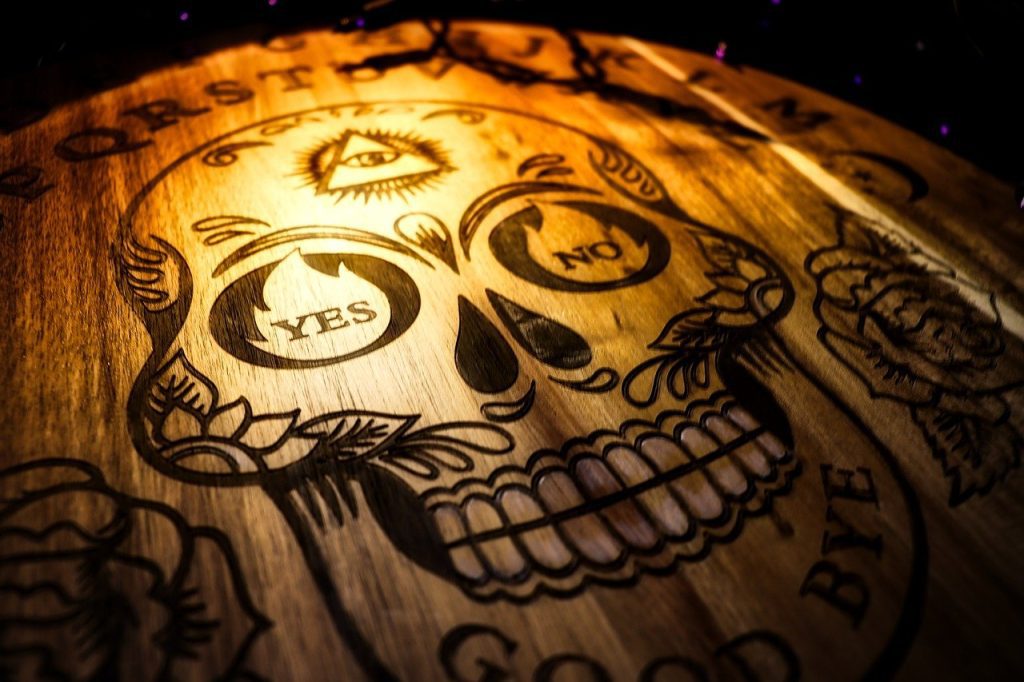The Ouija board is a game or tool that is believed to allow communication with the spirit world. It consists of a flat board with letters, numbers, and other symbols printed on it. The board is accompanied by a small, heart-shaped device called a planchette, which participants place their hands on and use to spell out messages from the spirits. The idea is that the planchette will move on its own, guided by supernatural forces.

The origins of the Ouija board can be traced back to the late 19th century. It was patented in 1890 by Elijah Bond and Charles Kennard, who were looking to capitalize on the spiritualist movement of the time. Spiritualism was a popular belief system that held that the living could communicate with the spirits of the dead. The Ouija board was marketed as a way to facilitate this communication and quickly gained popularity.
History
The name “Ouija” itself is said to have mysterious origins. According to the manufacturers, it was derived from the combination of the French and German words for “yes” (oui and ja, respectively). However, there are other theories suggesting that the name was actually revealed during the board’s first séance and is a combination of the word “Ouija” and “good luck” in ancient Egyptian.
Over the Years
Over the years, the Ouija board has garnered both fascination and controversy. Many people view it as a harmless parlor game or an entertaining tool for exploring the supernatural. However, others consider it as dangerous or a means of opening portals to malevolent spirits. Various stories and myths surrounding Ouija board experiences have only added to its mystique and controversy.
The popularity of the Ouija board has surged and waned throughout the decades. It experienced a resurgence in the 1960s and 1970s, during the rise of interest in the occult and paranormal. Hollywood movies and popular culture also contributed to its renewed popularity. Today, the Ouija board is still widely available, often marketed as a toy or novelty item.
However, it is essential to note that the scientific community dismisses the Ouija board’s claims of supernatural communication. They attribute the movement of the planchette to the ideomotor effect, where the participants unconsciously move the device themselves, influenced by their own thoughts and expectations.
In conclusion
the Ouija board has a long and intriguing history. Whether one sees it as a harmless game or a gateway to the spirit world, its enduring popularity continues to captivate and mystify people around the world.